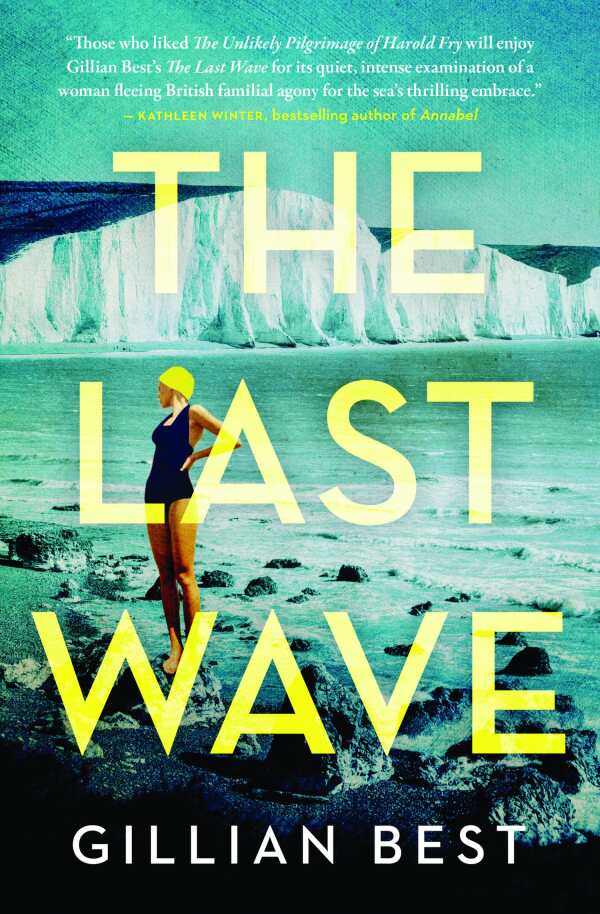The Last Wave
In Gillian Best’s The Last Wave, raw human emotion teems just underneath the lapping surface of modern English life.
After accidentally falling into the sea while fishing with her father, Martha begins a lifelong romance with the salty waves. Despite her mother’s insistence that she take a traditional path, Martha dreams of swimming the English Channel. Even after marrying John, having children, and accepting domestic duties, she never loses that desire. The obsession sustains her through cancer, her husband’s Alzheimer’s, and a rift with her daughter, Harriet, formed because John will not accept Harriet’s relationship with another woman.
The novel is beautifully poignant. Its emotional undercurrents are presented in a quietly powerful style, free of manufactured melodrama. Details are carefully chosen and breathe life into depictions of Dover and France. Martha’s myrtle bush, a plant usually found near the sea, is a lovely recurring symbol of the connections, however loose, that hold her family together. It takes on human form in Harriet’s daughter, Myrtle, an eager young swimmer who establishes a link between Harriet’s wife, Iris, and Martha.
Though Martha is the binding centrality here, windows into her family’s perspectives are opened. This is particularly effective with John, who is at risk of being painted primarily as an antagonistic husband hell-bent on maintaining a traditional household. His sections of the novel brim with sympathetic sadness, especially once his Alzheimer’s surfaces.
For Harriet, navigating the waters of intolerance proves challenging. And while Alzheimer’s steals John’s chance to reach a point of acceptance, it softens the resentment Harriet has for him.
The Last Wave, like the sea that holds Martha in its grip, is both gently stirring and tumultuous, a harsh yet alluring voyage through the decades of a woman’s life.
Reviewed by
Meagan Logsdon
Disclosure: This article is not an endorsement, but a review. The publisher of this book provided free copies of the book to have their book reviewed by a professional reviewer. No fee was paid by the publisher for this review. Foreword Reviews only recommends books that we love. Foreword Magazine, Inc. is disclosing this in accordance with the Federal Trade Commission’s 16 CFR, Part 255.

